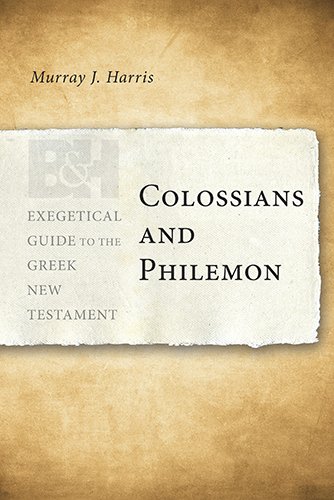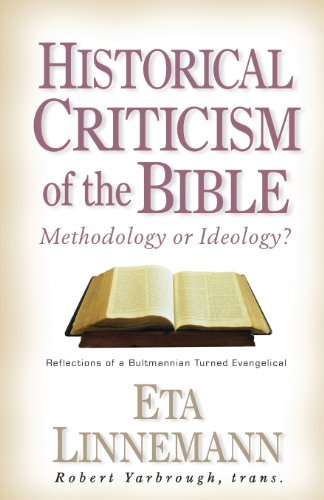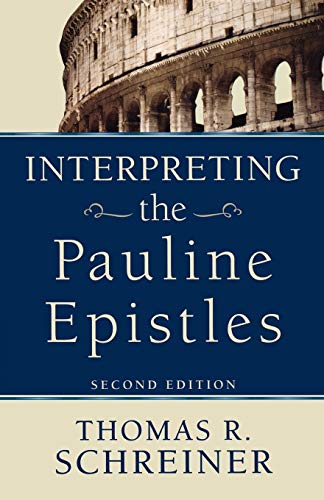Suffering and Ministry in the Spirit. Paul’s Defense of His Ministry in 2 Corinthians 2:14–3:3
Written by Scott J. Hafemann Reviewed By Linda L. BellevilleThis volume is the American edition of the author’s dissertation, which was published in 1986 by J.C.B. Mohr as part of the WUNT series under the title Suffering and the Spirit. The purpose of this edition is to reach ‘a wider audience’ (p. xiii). To this end the author has eliminated Greek/Hebrew block quotations, has transliterated and translated what remains, has ‘laymanized’ technical terminology, and has translated all foreign language quotes. In structure and content, however, it is a virtual duplication of the German edition, even down to the dedication and acknowledgments. Bibliographies are identical, including the high preponderance of German works, many of which are now available in English translation.
‘Prolegomena’ is the term that best describes this work. It is, in the author’s words, a preliminary study aimed at establishing a context for understanding Paul’s letter/spirit contrast in 2 Corinthians 3:4–18 as well as seeing what light 2:14–3:3 sheds on Paul’s self-conception as an apostle (pp. 1–2). (A second work, on 3:4–4:6, is apparently underway (p. 2). The author’s central thesis is that Paul in 2 Corinthians 2:14–3:3 is concerned to defend himself against the charge that his suffering calls into question his apostolic genuineness by showing that rejection of Paul as ‘the Spirit-giver who suffers’ is in essence a rejection of God himself. This thesis is pursued in the course of five chapters and eight pages of conclusions.
The author begins with a six-page introduction that sets forth his method of study (to be carefully noted) as one that sticks as closely as possible to the text at hand (rather than exploring the broader context of 2 Corinthians) and then seeks out ‘interpretive parallels’, where possible, from the Corinthian letters (as opposed to drawing on other Pauline and extra-biblical materials)—the one exception being additional historical knowledge needed for determining ‘the wider meaning of a word, idiom, etc.’ (p. 4).
Chapter 1 is devoted to explicating the widely debated meaning and use of thriambeuonti, commonly translated ‘lead in triumph’ (v. 14a). From an examination of the relevant primary sources, the author concludes that rather than a victory motif, Paul is drawing on the Roman image of a strong enemy triumphantly paraded on a death march through the city in order to set forth his apostolic self-conception as that of a captive slave constantly being led by God to his death.
Chapter 2 explores the inner connection between his death march imagery and the ‘sacrificial’ language of ‘fragrance’ and ‘aroma’ in vv. 14b–16a. From perceived parallels with Paul’s theology of the cross and catalogue of sufferings in the Corinthian letters, the author argues that the link is to be found in the concept of Paul as mediator of the life-giving Spirit, whose daily experience with death becomes a ‘sacrificial aroma’ to God.
‘Who is equal to such a task?’ (v. 16b). In Chapter 3—a scant 14 pages—the author, rejecting uniform scholarly opinion, claims that ‘I, Paul, am’ is the expected answer. Evidence and discussion of a conclusion that is foundational for what follows are, lamentably, left to a forthcoming work.
Chapter 4 is essentially an examination of Paul’s practice of self-support with a view to understanding his use of marketplace imagery in verse 17. Rejecting, from his investigation of the primary sources, the meaning of kapēleuontes as ‘to water down/adulterate ‘in favour of’ to sell for profit’, Hafemann argues that Paul in verse 17 is providing as evidence of his sufficiency the fact that he alone of the apostles chose not to receive financial support.
Chapter 5 rounds out the study with an analysis of 3:1–3, in which Paul, according to the author, presents the Corinthians’ conversion as proof that he is God’s true Spirit-bearer, and not his opponents who must resort to ‘self’ recommendation.
Paul’s suffering (2:14–17) and the work of the Spirit (3:1–3) are thereby brought together as ‘two complementary aspects of Paul’s apostolic ministry’ (p. 208).
The author in very clear fashion has underlined the essentially polemical character of 2 Corinthians 2:14–3:3 and has shown how these verses are integral to the issue of apostolic legitimacy, which is central to Paul’s argument throughout this letter. Among the strengths of his work can be listed documentation from primary sources, copious footnotes, and passage and subject indexes. Of special interest are the sections giving historical background on the Roman custom of the triumphal procession and on kapēleuō.
There are, however, two shortcomings that limit the usability of this work: (1) Lengthy citations of secondary sources, constant repetition, and the tendency to get bogged down in technical detail make for slow and, at times, tedious reading. (2) There is no evidence of interaction with the sizeable amount of literature that has appeared since 1983.
In this reviewer’s opinion the most serious weaknesses of the study are methodological. By beginning at verse 14, rather than at verse 12—where virtually all translators and editors (e.g. UBS) place their section titles—the author arrives at an understanding of verses 14–16a (a captive slave on his way to death) that is incompatible with the basic contrast in verses 12ff. between human weakness (vv. 12–13, human anxiety leads Paul to abandon a promising mission field) and divine power (vv. 14–16a, ‘but thanks be to God who triumphs over our weakness …’) Further, in leapfrogging between selected passages in 1 and 2 Corinthians in pursuit of ‘interpretive parallels’, the flow of Paul’s argument in the larger context is overlooked (e.g. that Paul at 3:1 is eschewing self-recommendation is in flat contradiction with texts like 6:4, ‘we commend ourselves in every way …’), and the role of these verses within the surrounding chapters is ignored (e.g. the claim that the ‘apostolic sufferings are unique and cannot be imitated’ (p. 78) is at odds with Paul’s references to the Corinthians as ‘co-sufferers’ in 1:6–7). Instead, the author works painstakingly through passages whose exegetical details are often irrelevant to the primary text under consideration. This can particularly be seen in the title of the work, which the author imports into these verses from other Corinthian passages. This is not to say that ‘suffering’ and ‘the Spirit’ are not important themes in 2 Corinthians—but are they really at the heart of Paul’s argument in these verses? (‘Spirit’ does not even appear until 3:3 and then not in any focal way until vv. 6–18.) Finally, a striving for what is novel and the overriding assumption that modern research has not properly understood a single word/phrase of 2:14–3:3 raises serious doubts about the viability of the author’s exegesis and conclusions at any given point (e.g. rhetorical questions introduced by tis elsewhere in 2 Cor. require a resounding ‘no’, not ‘yes’). There is also a dangerous circularity in reasoning, where a novel conclusion reached about one verse becomes the basis for rejecting usual or natural construals of subsequent verses (e.g., given the conclusion that v. 16b is a Pauline assertion of sufficiency, it then ‘becomes difficult to see how the usual construal of v. 17 fits’, p. 100).
In balance, though, this is a provocative work that one cannot read and remain indifferent to. It challenges one to rethink the traditional ways these verses have been interpreted and serves to place this passage in the mainstream of Paul’s apostolic defence. The author is to be applauded for striving after a coherence of argumentation in 2:14–3:3 that has eluded scholars thus far.
The repeated references to scholarly works and lines of argument, the technical detail of the study, and the assumption of the reader’s familiarity with the interpretive problems make the primary audience of this work those who have some biblical expertise and familiarity with the Pauline letters.
Linda L. Belleville
North Park Theological Seminary







